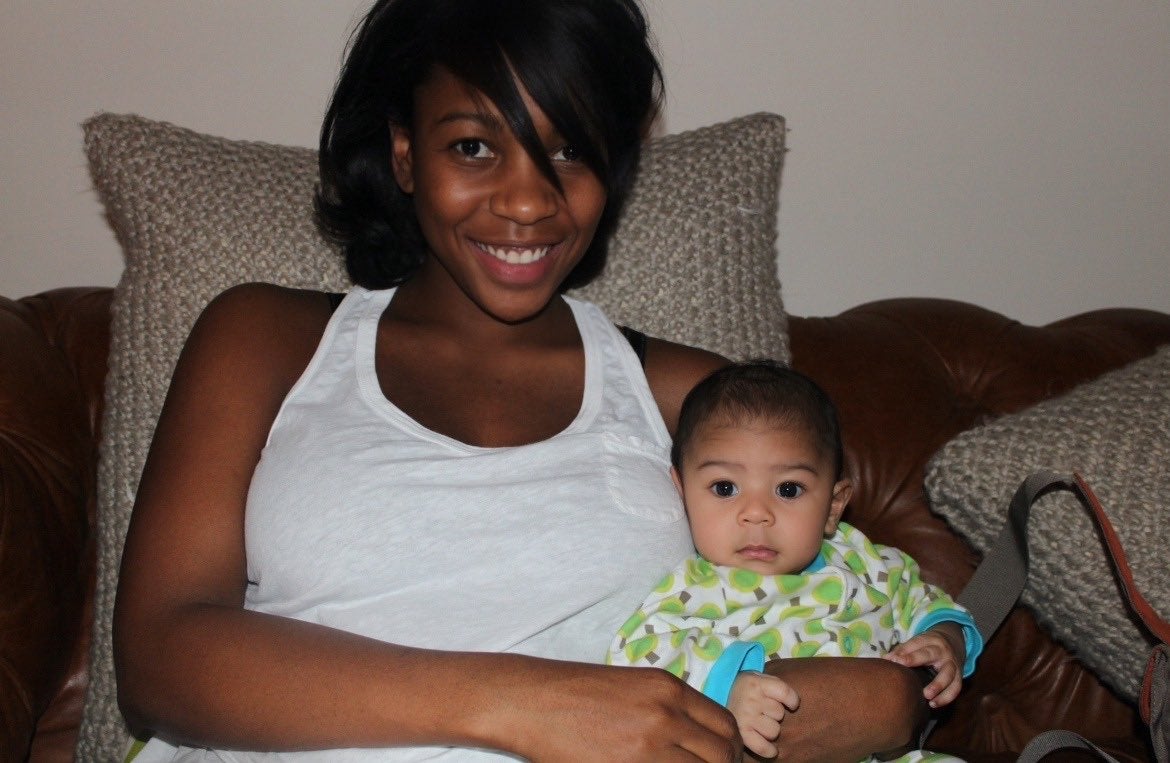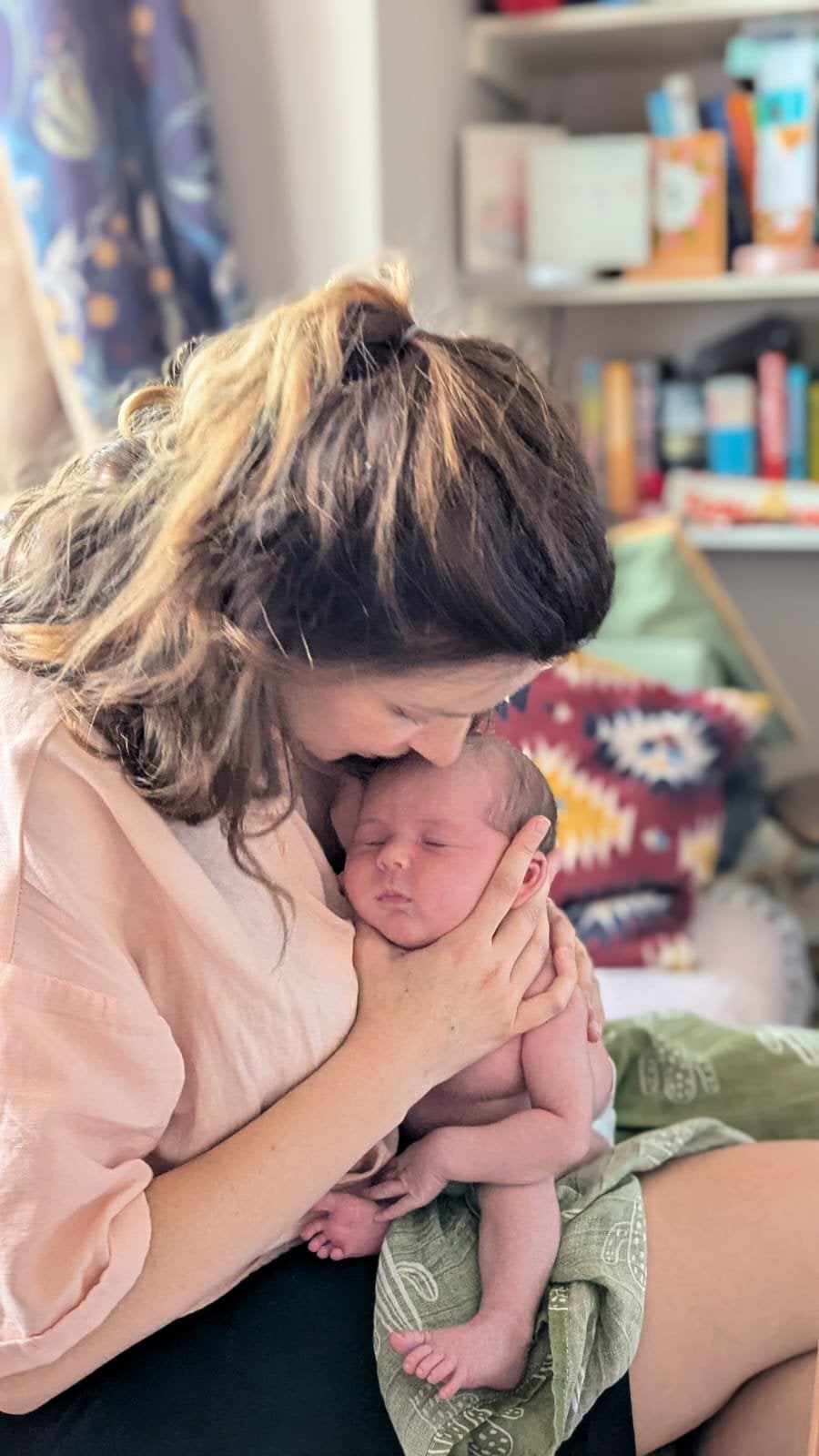This website uses cookies so that we can provide you with the best user experience possible. Cookie information is stored in your browser and performs functions such as recognising you when you return to our website and helping our team to understand which sections of the website you find most interesting and useful.
Your support helps us to tell the story
In my reporting on women's reproductive rights, I've witnessed the critical role that independent journalism plays in protecting freedoms and informing the public.
Your support allows us to keep these vital issues in the spotlight. Without your help, we wouldn't be able to fight for truth and justice.
Every contribution ensures that we can continue to report on the stories that impact lives

Kelly Rissman
US News Reporter
In 10 weeks time, I have to eject a whole human from my body. I understand this is never a picnic, but this year, giving birth feels more fraught than ever. It hasn’t been a great year for the maternity experience. In May, the all-party parliamentary group’s birth trauma report was released, identifying damning concerns from patients, midwives and doctors about the NHS’s maternity units. Social media hasn’t helped either: Instagram and TikTok are fertile ground for horror stories about everything from emergency C-sections to unwelcome inductions, tearing, episiotomies and days-long labours – neatly packaged into 30-second nightmare scenarios and served up on expectant mothers’ feeds.
Don’t get me wrong: it’s great that women are being given a voice when it comes to traumatic experiences and poor maternity care. I want the typical NHS birth experience to improve just as much as anyone else. But with all this noise out there, it can be difficult to imagine anything except the worst.
In truth, though, the chats I’ve found most motivating, and most encouraging, are the good birth stories. The ones just a handful of friends have slipped me under the table – voices lowered, almost apologetic. It’s not fashionable to say “I loved it”, but it does happen. People have told me they felt powerful, in control, or tapped into an intensely feminine, communal magic when working with their midwives.
Some argue there’s no point in highlighting these stories – they’ll only make women who suffered giving birth feel bad, or give first-timers like me an unrealistic picture of what’s to come. Last month, the presenter and influencer Ashley James dismissed the need for them on Jameela Jamil’s I Weigh podcast. “That’s a really toxic, irritating thing I find – when people are like, ‘Oh you only hear about negative birth stories,’” said James. “But do you think people want a positive story? No one wears that like a badge of honour. Maybe if we were all more open about the negative or traumatic birth stories, maybe then we could push for healthcare to improve and get better.”
I agree in part, but I also think we hear plenty about the bad. According to some experts, immersing yourself in the darkest “What ifs” can be physically counterproductive. What pregnant women need for a smooth birth is plenty of oxytocin – the hormone of contentment and security – some nightmare-free sleep and a dash of optimism. So, with 10 weeks to go until the birth of my own child, and a spectrum of ways that could go, what I want right now is balance, perspective and some good news. So I went off to find women who’d had non-horrifying experiences with childbirth, in the hopes of entering my third trimester with a bit of calm.
Sarah Walker

Sarah, an estate agent living in Richmond, southwest London, was nervous about the birth of her second child since her first ended in an emergency C-section. For round two, she was determined to make things easier. She turned to hypnobirthing – a combination of deep relaxation, breathing techniques, visualisation, and self-hypnosis to encourage pain relief – and says she had a transformative experience.
After the birth of my first child, my consultants wanted to arrange an automatic second C-section, but I felt strongly that I wanted to try a vaginal delivery. To get the birth I hoped for, I researched everything from nutrition to the right exercises to do. A friend from NCT classes then got me into hypnobirthing. I would listen to a series of audio guide visualisations to help support me through birth, often while drifting in and out of an afternoon nap.
The night before the birth, I slept for 10 hours straight. I felt refreshed and had a great breakfast shortly before the first contractions. Once in hospital, I didn’t know my assigned midwife – a rather mature, slight lady – but she was just lovely; everything she said was just so kind and calm. I told her about my hypnobirthing philosophy, and asked her to reframe the negative terms “pain” and “contractions” as more natural “surges”. Thankfully, she was happy for me to go with my instincts.
I wanted to stand up, swaying my hips and leaning over the top of the bed, and she was fine with that. We chatted away through the surges – we got talking about work and my property business, and it turned out she had a property she wanted to rent, so we did a bit of networking. She remained a client of mine for years afterwards!
In the visualisation I’d created, I was standing on this beautiful desert island beach, and I pictured each wave as my baby moving towards me and then away again. It was January, but I honestly felt like I was bathed in sunshine. Towards the end, I had the overwhelming – almost animalistic – urge to crouch down. Ever supportive, my midwife got down on her hands and knees to catch the baby. Then my daughter was here. I can’t say it wasn’t painful, but it was like the most beautiful pain.
Liana Fricker

When entrepreneurial consultant Liana moved to Guildford, Surrey, from the US, she imagined going private for the birth of her first child in the UK. She was sceptical about using an NHS hospital due to the horror stories she’d heard. Eventually, though, she was pleasantly surprised by the quality of care in her local area.
In the early weeks of my first pregnancy, I had appointments at a big NHS hospital in London, and I felt overwhelmed – you feel like they’re catering to 8 million people, and hear all these horror stories, like, “You never see the same midwife”. I assumed all NHS hospitals were like that. But when I was around 12 weeks pregnant, we moved out to Guildford, Surrey, and everything was better than I expected – pleasant, fast, with no waiting around. And I could do appointments close to home. So we decided we didn’t need to go private.
I’m a huge planner, so I did all the research: I was doom-scrolling Mumsnet from the time we were trying to conceive up to giving birth. But on Mumsnet, people don’t post about their amazing, boring birth. I guess I had no frame of reference for childbirth other than Mumsnet stories and movies.
So it was a surprise when it all went smoothly. Not only was my eldest son born right on his due date, but it was all so much faster than I expected. My waters broke really early, at 6am and he arrived five hours later. The birth centre was very calm early morning, I asked for an epidural and was given one promptly, and I felt very looked after from the minute we got there.
Between that and the labour lasting five hours, it was pretty painless. Eventually, my son came out with his cord wrapped around his neck, but it wasn’t a traumatic thing – he was fine. I had to have a couple of stitches, but I mainly remember having this huge adrenaline rush, taking a shower and going to the ward for a bit. I had pictured a private room in a private hospital, but being on the ward was much better. We had no idea what we were doing, and the midwives were so helpful.
Ella Burke

When Ella, an NHS speech therapist, fell pregnant with her daughter, she quickly decided to have an elective C-section. She was surprised how receptive her midwife was to the idea – and it made things smoother, and more organised. She could decide what day the baby arrived, even down the hour. She loved the predictable calm of it.
I never thought I would have a C-section, but once I was pregnant, I realised I was terrified – not so much of childbirth, but the potential after-effects and lasting issues. I’d already had a surgical procedure to fix a recurring UTI problem, and I was anxious to make sure nothing changed there. So when a midwife friend of mine had an elective C-section, it made me think: she’s seen a lot, she knows a lot about birth and she went down that route. I also wanted the most predictable option; to know, as much as you can know, what was going to happen.
I work for the NHS myself, and I always try to present patients with all the options. Yet, you find maternity teams usually present vaginal delivery as the main option, with C-sections reserved for emergencies. Actually, I found, you are entitled to ask for a C-section, as long as you understand the potential complications. I raised it at my eight-week booking appointment with my midwife. She was really supportive and set up an appointment with a consultant, and we went from there.
The wait is weird, because you have the date you’ll meet your baby in the calendar for months. I still felt nervous about the possible complications and did a lot of research about it. The night before I was nil by mouth from midnight, then arrived at the hospital about 7am.
Once in the theatre, I was essentially spatchcocked in the middle of the room, naked from the waist down, catheter in. The whole thing was super quick – the worst bit was probably having the anaesthetic injected into my spine, but even that was probably 10 seconds of discomfort. I’d asked not to see anything, and to have the curtain up and not even have too many updates, which the team were brilliant about. It was very much “Do what you need to do”.
My husband had made up a little set of quiz questions for me to take my mind off things. Then, within 15 minutes, my daughter was born. We had our playlist on at the time and it was all pretty chilled. I was a bit concerned that I wouldn’t feel this overwhelming, rewarding bliss that you hear about after a long, challenging labour, but it was still so beautiful seeing her come out, and hearing those cries.



 Africana55 Radio
Africana55 Radio 
